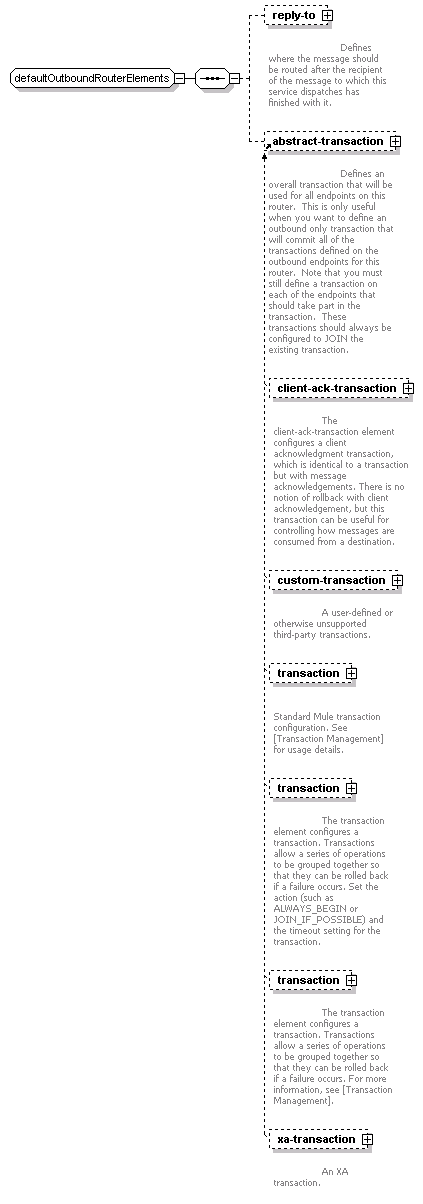
Namespace: |
|
Content: |
2 elements |
Defined: |
globally in mule.xsd; see XML source |
Includes: |
definitions of 2 elements |
Used: |
at 2 locations |

Complex Content Model |
| reply-to?, abstract-transaction? |
| <xsd:group name="defaultOutboundRouterElements"> <xsd:sequence> </xsd:sequence> </xsd:group> |
Type: |
abstractTransactionType, empty content |
Abstract: |
(may not be used directly in instance XML documents) |
Subst.Gr: |
may be substituted with 6 elements |
| <xsd:element minOccurs="0" ref="abstract-transaction"/> |
Type: |
endpointRefType, empty content |
| <xsd:element minOccurs="0" name="reply-to" type="endpointRefType"/> |
| XML schema documentation generated with DocFlex/XML RE 1.8.5 using DocFlex/XML XSDDoc 2.5.0 template set. All content model diagrams generated by Altova XMLSpy via DocFlex/XML XMLSpy Integration. |